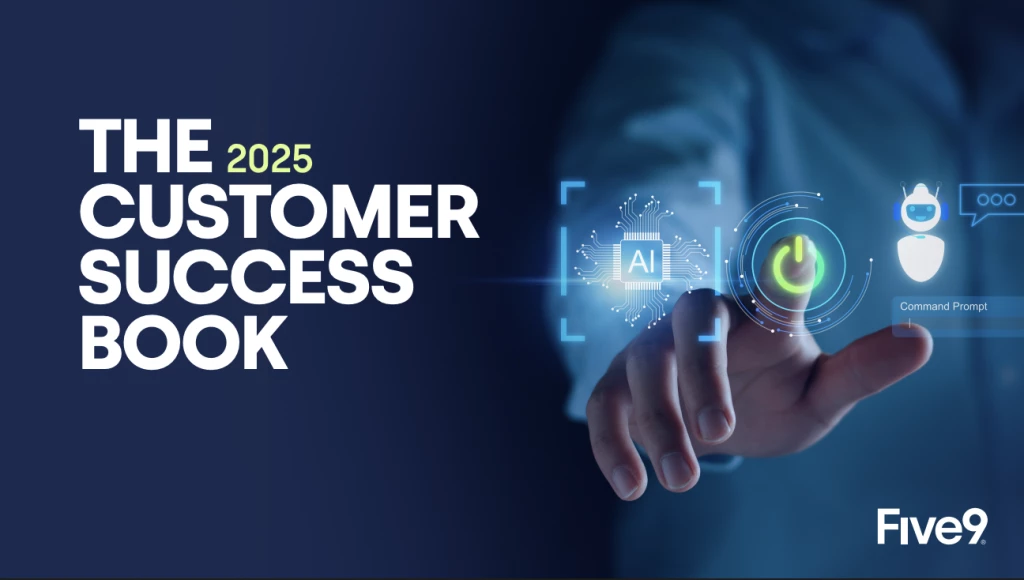Knowledge Management For Next-Generation Customer Experiences
Looking for new ways to enhance customer experiences? Consider the value of effective knowledge management.
Add bookmark
2024: A Year Of Information Influx And Data Displacement
At a time when organizations are operating at round-the-clock omnichannel capacity, being able to reference information in real-time is critical to maintaining efficiency in the contact center and providing exceptional customer service.
Agents note overwhelm and frustration from parsing through multiple platforms to find resources and communicate with customers. Customers express confusion on who—and where—to go to find the solutions they seek. Customer contact executives fear financial loss, productivity decrease and less customer loyalty as results of mismatched knowledge management tools and internal disorganization.
To avoid the aforementioned pitfalls and ensure that all parties can maximize their experience with a brand or product, having systems, platforms and standard operating procedures within the contact center that meet employee and customer needs is essential.
Knowledge management systems are a valuable part of the digital CX ecosystem in that they can store, organize and retrieve company and customer data in ways that increase internal understanding of the business, encourage collaboration across organizational functions and support customer needs.
How To Improve The Knowledge Management Process
At times, it can be hard to know where to start in terms of identifying the right knowledge management tools for any organization. The allure to pick a better program than a competitor, the most popular one on the market or the one that most agents or customers prefer is understandable, however not all knowledge management tools are created equal.
Knowing where organizational data currently lives will be the first and most important step of choosing how to store it. Are documents on a hard drive, filing cabinet, in the cloud, or written down in a notebook locked away in a coworkers desk where not all team members can access it? Are there records on SOP or CX guidelines that ought to be part of the data inventory but seem to be misplaced or not exist?
Thoroughly reviewing the information and data collected by the organization over the years and removing any duplicates, data sets that no longer apply to the business, and identifying what aspects of past knowledge management efforts have been rendered obsolete will level the playing field in terms of what your knowledgement management options are in 2024.
Secondly, conducting market research on available options, considering compatibility with legacy systems, and investigating ways in which existing knowledge management efforts can be re-configured or improved are some financially savvy ways to begin the process of choosing the best programs and platforms for your team.
Additionally, opting for knowledge management tools that are designed to evolve and fluctuate over time–in terms of how it ingests, organizes and disperses data–will help ensure that any investment made on new products or features can be one made with the promise of longevity in the short and long term.
Lastly, but certainly not least, holding transparent conversations with contact center employees on their needs when working with organizational data—as well as customers—will also help to guide contact center leaders in the right direction. Moreover, soliciting feedback from customers on how easy or difficult it is to engage with the brand in omnichannel and find useful information on company products will be a key point for consideration when rebuilding a knowledge management tech stack.
Productivity Provides Room For CS And CX Ownership
When a knowledge management system is successfully deployed– agents are able to source the necessary data in a timeframe appropriate to the customer’s needs without difficulty–customer service agents become true proprietors of the customer experience.
Each individual now has access to what they need to do their job successfully and operate across departments or contact center functions. This reduces stress on the part of the agent and allows them agency of their workflow. It also minimizes the need for contact center leaders and management to micromanage, engage their team in menial “busy work,” or spend more time troubleshooting as opposed to ideating on or executing new ways to improve CX.
While smooth processes are beneficial to employees within the contact center, organized data also has its drawing points for customers looking for a personalized, streamlined and succinct customer experience. Engaging with brands–in-person, via email, through a chatbot or otherwise–and being able to have clear, consistent and reliable connections with agents is what customers need in order to have exceptional experiences.
When customers don’t also have to struggle through multiple platforms, inaccurate content on web pages and spend large amounts of time solving what they hoped would be a quick-fix problem, their willingness to engage with one organization or brand over a competitor increases.
Effective Knowledge Management Creates Enhanced Customer Experiences
Offering personalized, concierge-style service is still possible in today’s day and age, provided that CX teams know what customers need and when, where and how to address them. They are working with information sourced from phone calls, emails, chatbot messages, social media posts and in-person conversations. Depending on what touchpoints customers prefer, agents must be able to connect all of those dots and data points to illustrate, comprehend and predict each customer’s unique journey within their organization.
On the part of the agent, employees will become more empowered not just with organization via knowledge management tools, but with the freedom and flexibility to take their findings across the lines of omnichannel with coworkers and customers alike. Even those employees working through a variation of screens and tech stacks will be able to better access knowledge at quicker speeds and provide more accurate information to one another, as well as customers.
Regarding customer contact leaders, they will lead more professionally fulfilled, creative, motivated teams that are delivering exceptional hand-tailored solutions to customers. Over time, the ROI on intention setting and intuitively choosing a knowledge management system will rise, and employees and customers will both be able to navigate the organizational structure with ease, familiarity and without redundancy or dead-ends.
As new technologies and digital opportunities for growth evolve, more organizations are going to find themselves in need of knowledge management systems that can not only standardize the data they have, but can help shape and improve the data that customers will bring into the organization at each communication touchpoint.




























